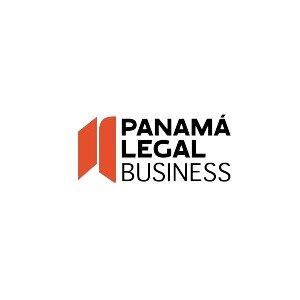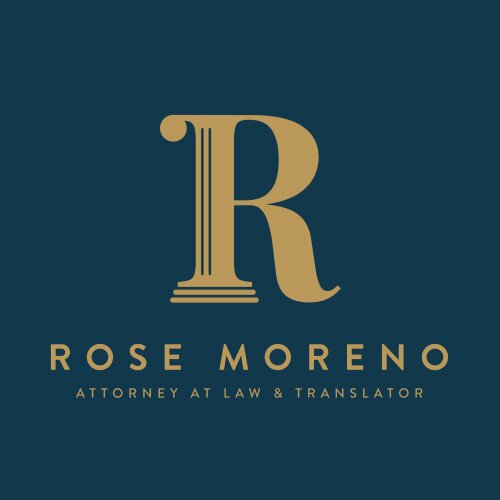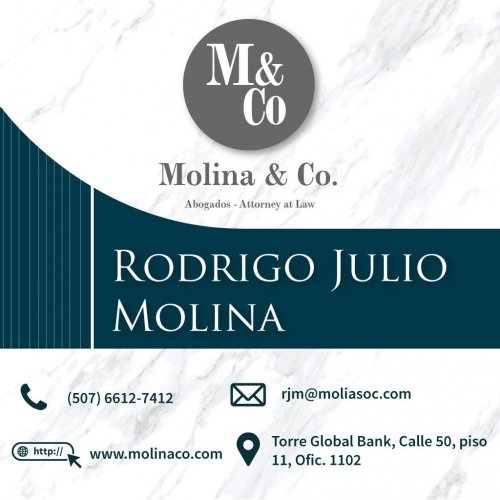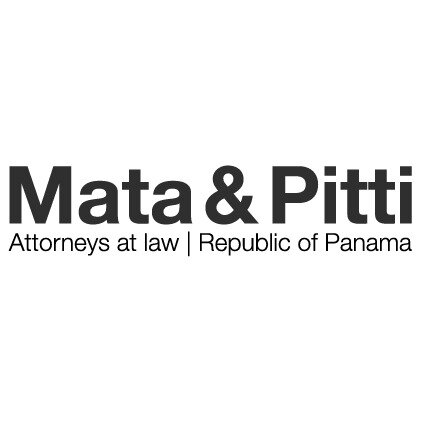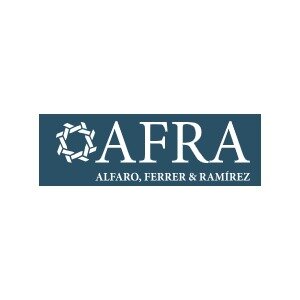Best Art & Cultural Property Law Lawyers in Panama
Share your needs with us, get contacted by law firms.
Free. Takes 2 min.
Or refine your search by selecting a city:
List of the best lawyers in Panama
About Art & Cultural Property Law in Panama
Art & Cultural Property Law in Panama encompasses the legal frameworks governing the protection, management, and transactions of art and cultural artifacts within the country. This area of law is crucial in preserving Panama’s rich cultural heritage, ensuring that historical artifacts and art are maintained for future generations. Panama has various legal measures in place to protect cultural property from illegal trade, theft, and damage, including international agreements and local legislation.
Why You May Need a Lawyer
Individuals and organizations may need legal assistance in Art & Cultural Property Law for several reasons:
- Buying or Selling Art: Legal guidance can ensure transactions comply with local and international laws and avoid disputes.
- Exporting or Importing Artworks: Legal expertise is required to navigate regulations around exporting or importing cultural property.
- Provenance Research: A lawyer can assist in conducting due diligence to establish the history and legality of an artifact’s ownership.
- Restitution Claims: Legal help is essential for recovering stolen or illicitly traded art and artifacts.
- Estate Planning: Lawyers can help when art collections are involved in wills or inheritances.
- Intellectual Property Issues: Legal advice may be needed for copyright, trademark, or dealing with forgery and counterfeit issues.
Local Laws Overview
Panama’s legal framework for Art & Cultural Property Law includes several key aspects:
- Heritage Protection Laws: Panama has specific legislation aimed at protecting its archaeological and historical heritage.
- International Agreements: Panama is a signatory to international conventions, such as UNESCO’s 1970 Convention on Cultural Property, which informs local regulations.
- Export and Import Regulations: There are strict guidelines and procedures governing the export and import of cultural goods to prevent illegal trade.
- National Registry of Cultural Property: Cultural items may need to be registered to ensure they are protected under national law.
Frequently Asked Questions
What is cultural property?
Cultural property refers to objects, sites, or structures of historical, artistic, or scientific significance. This includes artifacts, artwork, monuments, and other heritage items.
How can I legally export art from Panama?
To legally export art, you must comply with local export laws and regulations, which often require government permits and adherence to international agreements preventing illicit trade.
What should I do if I inherit a collection of art?
It’s wise to consult with a lawyer specializing in Art & Cultural Property Law to ensure proper documentation, appraisal, and compliance with any legal or tax obligations.
Can I import a piece of cultural property into Panama?
You’ll need to follow import regulations, which may include obtaining permissions, paying duties, and ensuring the item is not illegally acquired in its country of origin.
What happens if I purchase a stolen piece of art unknowingly?
If you find that you have purchased stolen art, it’s crucial to contact a lawyer immediately. They can help navigate ownership disputes and negotiate restitution.
How do I prove the authenticity of an artwork?
Authenitication typically involves provenance research, expert evaluations, and sometimes scientific testing. Legal advice can ensure this process is thorough and legally sound.
Are there laws protecting the moral rights of artists in Panama?
Yes, artists have moral rights in Panama, which protect their honor and reputation in relation to their works, separate from copyright.
What is the penalty for illegal trade of cultural property in Panama?
Penalties can be severe and may include fines, imprisonment, and restitution of the artifacts. The exact penalty depends on the nature and severity of the violation.
Is it possible to claim ownership of cultural property discovered on private property?
Ownership claims are subject to national heritage laws, which may require registration or other actions to ensure heritage protection and compliance.
Can indigenous artifacts be sold or transferred legally?
Many artifacts are protected by law due to their cultural significance. Legal consultation is recommended to understand the specific restrictions and conditions.
Additional Resources
For more information, consider reaching out to:
- Ministry of Culture of Panama: The government body responsible for cultural heritage policies.
- UNESCO Office in Panama: They provide resources on international conventions affecting cultural property law.
- Law firms specializing in Art Law: Expert legal advice tailored to individual circumstances.
Next Steps
If you need legal assistance in Art & Cultural Property Law, consider taking the following steps:
- Identify Your Legal Needs: Clearly define your issue or potential transaction.
- Consult a Specialist: Contact a lawyer or firm with expertise in Art & Cultural Property Law.
- Gather Documentation: Collect all relevant documents and evidence related to your legal matter.
- Understand Legal Fees: Get a clear understanding of the costs and the lawyer's fee structure before proceeding.
- Stay Informed: Regularly consult reliable resources to stay informed about any legal changes in the field.
Lawzana helps you find the best lawyers and law firms in Panama through a curated and pre-screened list of qualified legal professionals. Our platform offers rankings and detailed profiles of attorneys and law firms, allowing you to compare based on practice areas, including Art & Cultural Property Law, experience, and client feedback.
Each profile includes a description of the firm's areas of practice, client reviews, team members and partners, year of establishment, spoken languages, office locations, contact information, social media presence, and any published articles or resources. Most firms on our platform speak English and are experienced in both local and international legal matters.
Get a quote from top-rated law firms in Panama — quickly, securely, and without unnecessary hassle.
Disclaimer:
The information provided on this page is for general informational purposes only and does not constitute legal advice. While we strive to ensure the accuracy and relevance of the content, legal information may change over time, and interpretations of the law can vary. You should always consult with a qualified legal professional for advice specific to your situation.
We disclaim all liability for actions taken or not taken based on the content of this page. If you believe any information is incorrect or outdated, please contact us, and we will review and update it where appropriate.
Browse art & cultural property law law firms by city in Panama
Refine your search by selecting a city.



